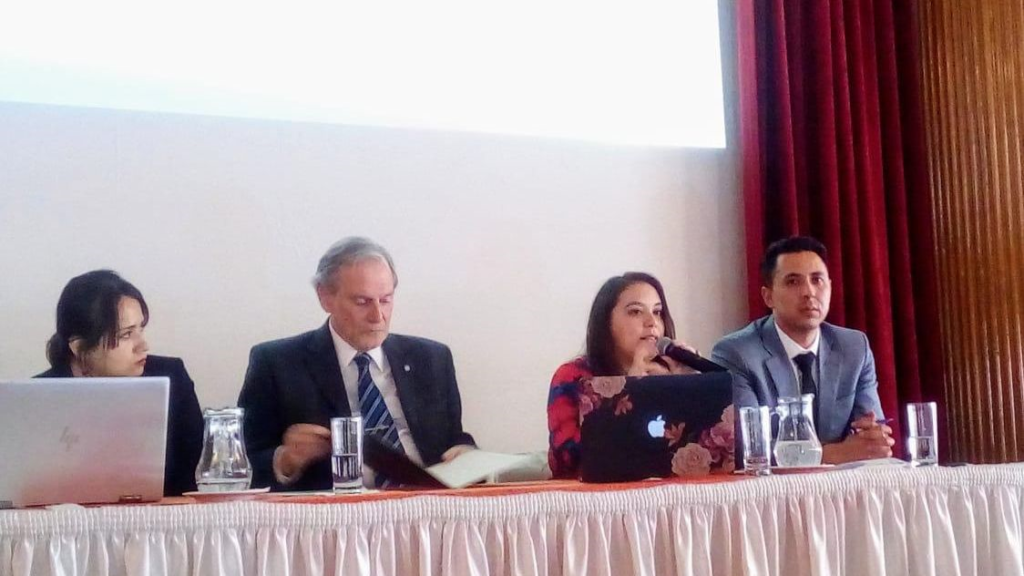Sarahi Garcia Martinez – National Project Director for JJI Mexico – shares in La Paz, Bolivia
“I must clarify, this has been the experience in Mexico” I kept repeating such statement during my intervention at the International Conference on Restorative Justice for Juveniles in Conflict with the Law in La Paz, Bolivia. Our current statutes on juvenile justice can be seen as progressive and inline with international law context. In my effort to be respectful to Bolivia’s unique timeline in implementing an efficient juvenile justice system, I realized that we had similarities in our experiences. It is undeniable that Mexico shares an inheritance of the American delinquency system with other Latin American Countries. This early XIX century approach endowed the State with a pater familiae character towards the juvenile justice system. Lasting more than three decades, the juvenile justice of the time considered youth as incomplete beings, unable to make rational decisions. Such a paradigm clearly became unsustainable. The main lesson from this judicial experience was that youth are not incomplete beings, rather they are in a stage of development. It taught us that it is unsustainable for the State to take on that role and that a different protection system lead by other institutions should take an aiding role to justice. Most importantly, I believe it taught the Mexican State the important role that human dignity should take in the juvenile justice system.
Almost all forums that I have attended to on the subject of juvenile justice have for the most part been focused on technical efficiencies of the judicial process, such as youth services, community services, among others.
During my intervention at the International Conference, I was able to identify a common feeling among other colleagues. Those who have been fighting for a human rights protection system, and those of us who joined such fight in recent years, have identified a common threat – a “neo” overprotective delinquency system. Such a paradigm could easily infiltrate human rights oriented justice systems due to the lack of institutional support of the new juvenile justice model. It is clear that the government cannot return to take a role of an overprotective father, but rather it needs to collaborate alongside other actors who can aid the juvenile justice system appropriately.
Society expects safer communities. It demands justice. A justice system can provide the former, but the latter must result from a wider public policy effort. For example, we cannot put aside the importance of prevention, nor can we ignore the consequences of an adolescent being part of an inefficient justice system.
Dangerously, this can occur when the justice system has to take on the task of providing all the guarantees and protections to kids. A clear example is adolescents in conflict with the law with substance use problems. There must be intervening agencies that are part of a protection system that supports the justice system for adolescents during the judicial process when the presumption of innocence is present.
During the International Congress, I was able to find the hope of having diverse agencies and organizations joining the process of restitution of the rights of teenagers. With certainty, I strongly believe that a similar process can happen in Mexico. System operators have already realized the value of civil society involvement and the co-responsibility of other government agencies.
Events like the International Congress in Bolivia reminds us how important cross-border collaboration is. I extend my thanks for the opportunity to be part of such an important forum.

